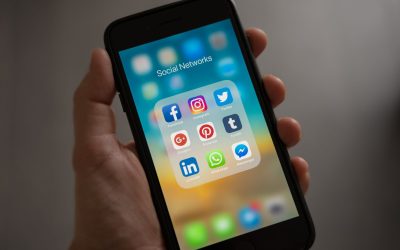Being a marketing professional has been rated as the best (and happiest) job in the UK.
However, we understand that being a marketer can also be very stressful, what with the deadlines and multiple balls you have to juggle on a day to day basis.
One way to combat this is to think of ways that you can be more productive as a marketer. Some of you may think that grinding away hour after hour, skipping breaks and lunch is the key to being more productive.
We’re here to tell you that this couldn’t be further from the truth. Would you be shocked if we said that rest and taking regular breaks is actually the key to being more productive?
There’s been a lot of talk recently in the media about how companies are developing a toxic or bad company culture, where employees are rewarded for doing ridiculous hours and are respected if they work through lunch.
Only a couple of years ago there was a devastating case where a bank intern died after ‘working for 72 hours’ because they felt pressure to excel.
Something has to change. Employees think they have to work themselves into the ground to prove their worth to a company, putting their own health at risk.
We could learn a thing or two from athletes
This may sound crazy but the formula for training to compete in a triathlon and working more productively is very similar. The formula requires one key ingredient that we often neglect and that is rest.
It’s all about finding the right balance. Brad Stulberg (who lives and breathes everything to do with the science of human performance) and Steve Magness (who coaches professional runners and lectures at St Mary’s University, Twickenham) says the following equation is true regardless of what you are trying to grow:
Success + rest = growth
The fact that success comes first doesn’t mean that rest isn’t as important. They are equal.
It’s easy to see why athletes need rest. Whether you are running long distances or weight lifting, during training you are putting stress on the areas of your body you want to improve.
This stress damages the body, meaning that a rest and recovery period is needed for the body to heal, adapt and get stronger.
After you have rested, you can then up the game e.g. take on more weights or run a longer distance. You have put your body through stress again meaning a rest period is required. This process goes on and on until you have reached your goal or the competition/event you have been training for has arrived.
How does this relate to the workplace?
Marketers can take a similar approach. Research has been carried out showing that having the right balance between work and rest is essential to those trying to master a skill, being more productive or working towards that all important eureka moment!
Psychologist Mihaly Csikszentmihalyi is renowned for his flow concept and spent a lot of his time sitting down with geniuses to interview them. These geniuses included artists, scientists, writers and he found that top performers followed a similar cycle of hard work followed by a period of rest and recovery.
Csikszentmihalyi found that this approach prevented creative burnout and cognitive fatigue but more importantly encouraged breakthrough ideas. That all important eureka moment!
Take a timeout…
Stulberg and Magness are fond believers of taking a break (a KitKat isn’t necessarily required) when energy levels are low, or you get stuck on a specific task.
It needs to be a break which takes you away from that task e.g. making yourself a coffee, going on a short walk (your Fitbit has properly already alerted you that you have been sat sit for too long) or just taking a breath of fresh air.
We know that it’s easier said than done and whilst most of us want to do what is right, the temptation to eat lunch at our desks or write a report whilst checking out BBC news gets the better of us.
However another thing we could learn from athletes is the importance of following through!
Other reasons why you need a break:
In case you need more convincing, below are some more reasons why breaks are important:
- Breaks are key for ensuring physical and emotional health
- Breaks can prevent decision fatigue (the deteriorating quality of decisions made by an individual after a long session of decision making)
- Breaks can help reinstate motivation
- Breaks can help consolidate memories and improve learning
Examples of what you can do for a break:
Just in case you need some inspiration for break ideas please see below:
- Exercise– getting out in the fresh air is ideal however stepping away from your desk and doing 10 squats would also be fine
- Change of scenery – take yourself away from the room you are currently in e.g. if you work from home why not sit in the kitchen and flick through a magazine or if you work in an office why not head to the canteen?
- Snacks – the temptation here would be to reach for a sugary snack, healthy snacks are better e.g. fruit
- Power naps
- Breathing exercises
- Meditate – if you find it hard to mediate why not just daydream for a while
- Drinking a cuppa
We hope that this article has helped you see the importance of breaks.
Marketing workaholics that are reading this, we hope this has helped you in seeing that rest is just as important as work. We all know the saying, “work hard, play hard!”
Obviously, there are times when you shouldn’t take a break for example if you are in a good state of flow e.g. fully focused on a task, which is seemingly effortless concentration and you are enjoying yourself!
Maybe you’re on a roll with putting together your monthly content marketing plan and everything is falling into place just nicely.
If you find it hard to take a break altogether why not switch to a different job. Stop doing the arduous task that you are finding frustrating and instead choose something fun to do like picking images for an advert.
We dare you to give this idea a go!
The next full day at work, schedule yourself some breaks in or after each task you have completed take a break.
It must be a substantial task e.g. opening and reading one email or just writing the title of your next groundbreaking article doesn’t count!




